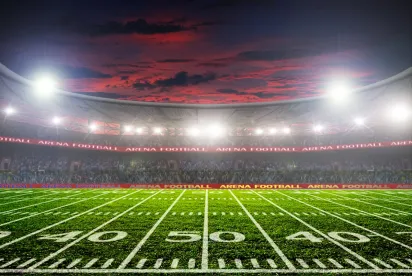On December 30, 2022, a district court dismissed a Catholic high school’s RLUIPA challenge, granting summary judgment on all claims in favor of the City of Madison, Wisconsin and various other city officials (the City). As ruled by the court, the City did not discriminate against Edgewood High School of the Sacred Heart, Inc. on the basis of religion when it denied Edgewood’s latest conditional use permit application for outdoor lighting at the school’s athletic fields. Edgewood’s attempt to install outdoor lighting in order to use its own fields at night, instead of using a field located a 15-minute drive east of its campus, proved unfruitful.
The court first ruled that Edgewood could not establish a violation of RLUIPA’s equal terms provision. In the crucial absence of any evidence that the City treated a similarly situated secular school more favorably (i.e., by allowing outdoor lighting for athletic fields), Edgewood could not establish that it was discriminated against on the basis of religion. The court noted the complete dearth of evidence that the City acted with religious animus. Rather, in upholding the Plan Commission’s denial of Edgewood’s conditional use permit application, the Common Council relied on the neighbors and neighborhood associations’ testimony and sound studies. These studies showed that the proposed addition of lights and sound equipment would greatly increase the noise levels, which were already deemed to be excessive and disturbing. The court agreed that the Common Council’s reference to noise and light disturbances, in addition to the potential detrimental effect on property values and the existing doubts regarding Edgewood’s ability to comply with suggested limits, constituted substantial evidence supporting the Common Council’s ultimate decision on appeal.
Edgewood’s substantial burden claim fared no better. The court stated: “Even if the court were to assume that night football (as opposed to a variety of sports conducted in gym classes and at practices) is an important element of Edgewood’s religious exercise, which is certainly not a given, plaintiff offers no evidence that it is substantially burdened by having to play night home games at a different field.” The court also rejected Edgewood’s free speech and free exercise claims.
Beyond the resolution of the RLUIPA issues, the permitting background leading to Edgewood’s filing of the complaint should also serve as a cautionary tale for both religious and secular institutions. When the City of Madison enacted Campus-Institutional Districts in 2013, existing educational institutions were given the choice to adopt a Master Plan or remain subject to their existing zoning district. Edgewood chose to participate and filed its Master Plan in 2014. While the Master Plan identified the existing athletic field use as an “athletic field owned by Edgewood High School [and u]sed for team practices, physical education classes,” it missed the opportunity to expand the description to anticipate greater use of the field. For instance, it could have described the field as a “major event facility” like UW-Madison [a secular school] had done in its own Master Plan for its tennis stadium or considered adding the possibility of the field’s expansion in any proposed developments description in the Master Plan. This unfortunately proved to be a costly error for Edgewood, as evidenced in the court’s decision.
The decision in Edgewood High School of the Sacred Heart, Inc. v. City of Madison, No. 21-CV-118-WMC, 2022 WL 18024626 (W.D. Wis. Dec. 30, 2022) is available here.
Madeleine Laffitte also contributed to this article.



 />i
/>i

